[ad_1]
Why does everyone hate Bella Ramsey in the second season of The Last of Us? This is one of the questions that pops up week after week on X, Reddit threads, and Instagram, often accompanied by grotesque, heavily altered photos of the actress’s face or replaced with that of some monstrous character, from Sloth from The Goonies to Quasimodo.
“The ugliest woman on the planet,” they call her. “A pathetic actress,” “A progressive clown”… The insults are not limited to her physical appearance or alleged professional failings (though her performance in the first season earned her both an Emmy and a Golden Globe nomination). They extend to personal attacks as well. It’s no surprise that this angry, over-the-top reaction comes primarily from the MAGA crowd, those aligned with Trumpist ideologies, a breeding ground for misogyny, homophobia, racism, and transphobia.
A significant number of viewers, after each episode ends, aren’t moved by the subtlety of Gustavo Santaolalla’s music or Ksenia Sereda’s exquisite cinematography. Instead, they rush to replace Ramsey, 21, with Cailee Spaeny, the actress from Civil War and Alien: Romulus. “I wonder if AI is advanced enough to convincingly replace Bella with Cailee,” reads one thread.
Spaeny has become the new favorite of frustrated viewers, displacing Elliott Page — who was once the fan choice for Ellie due to his striking resemblance to the character in films like Juno. A resemblance so undeniable that Page jokingly claimed he wasn’t paid for it. Entire threads are devoted to the alleged miscasting of Ramsey, the actress who was only 17 when she joined the show’s production.
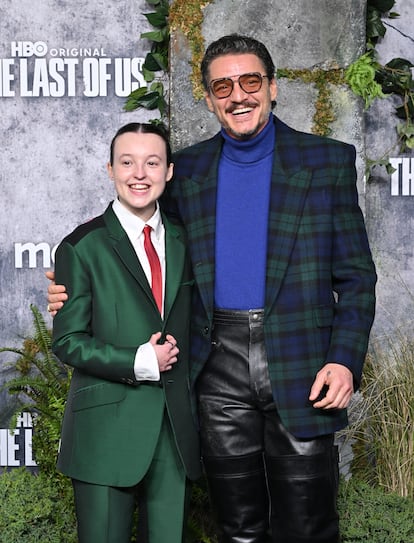
The hatred directed at actresses, especially young ones, is a trend that no longer surprises us. Take recent examples like Rachel Zegler in Snow White, Halle Bailey in The Little Mermaid, Morfydd Clark in The Rings of Power, or any woman who dares to take on a powerful role in Marvel, Disney, or Star Wars. Social media has become a breeding ground for all sorts of hostility, but this hatred has existed since the dawn of time. You don’t have to dig too deep into classic Hollywood to find examples of slander. There were rumors about Clara Bow’s supposed sexual promiscuity: she was accused of sleeping with an entire football team. And Maureen O’Hara was allegedly caught having sex at the Chinese Theater. Anything went to diminish the achievements of talented women.
The hatred has taken a toll on Ramsey. “It’s the first time I’ve ever had a negative reaction to something,” she told The New York Times. After her role as Ellie was revealed, she turned to social media to gauge fans’ reactions. She admits that it became an addiction, and she couldn’t help but return to the comments repeatedly, though she only paid attention to the negative ones and questioned the positive ones. “There would be times I’d find it funny. Then I’d get to the end of a 10-minute scrolling session, put my phone down and realize: Maybe that was a bad idea.”
She ultimately followed the same path as other actresses who have faced bullying and chose to close the social media accounts she had opened at the age of 12, tired of constantly encountering fake accounts impersonating her. “But now, I’ve just deactivated my Instagram and my Twitter. I’ve reached a point where I don’t actually need this anymore. People know that a fake account pretending to be me isn’t me,” she confessed during an interview with her Game of Thrones co-star, Kit Harington, another actor who has no social media presence. “It wasn’t even this big dramatic thing. Nothing really happened. I just got so sick of it, and it was detrimental more than helpful. I feel wonderful.”
The attacks began when The Hollywood Reporter announced that Ramsey was cast as Ellie, the protagonist of a video game often compared to The Godfather and which has sold over 20 million copies. But the vitriol increased after the plot twist in the second episode of the new season, which has made her the central figure. For some, playing a lesbian heroine is more than they can tolerate — or rather, let’s be more specific, a lesbian heroine who is not sexually desirable to them.
“It’s only recently that I’ve accepted I am Ellie, and I can do it, and I am a good actor,” she said. “But this will last for a few weeks and then I’ll think I’m terrible again. That’s just the process.”
Ellie isn’t her first significant role. At just 11 years old, she was part of a universe even more mammoth than that of The Last of Us. She played Lyanna Mormont in Game of Thrones, a minor character, but one who, unlike today, became a fan favorite of George R. R. Martin’s saga.
Those who saw her screaming in rage at the hands of a giant zombie after piercing its eye with a spear weren’t surprised by her casting as Ellie. She delivered one of the saga’s most iconic lines, “The North remembers,” and rallied a host of men, both powerful and cowardly, to follow Harington’s character, Jon Snow. Ramsey, who has been studying drama since the age of four, made an excellent impression on a well-oiled cast.
“From the moment she came in, she was on it: She was professional, and she was just brilliant,” recalled Liam Cunningham, who played Davos Seaworth in Game of Thrones. “There’s an old adage about how actors should never work with children or animals, but that’s B.S. When kids are as good as this young lady is, it’s a joy to play opposite. She was absolutely amazing. When somebody comes in and is that good, it makes your job that much easier.”
She was so young that she worked on child hours and had very limited shooting time, but she never needed more. Her impact was such that her character received more development than initially expected. “She’s someone we’re going to look back on in 20 years, and she’s going to be ruling Hollywood. She’s just amazing,” said Mark Mylod, who directed her in her debut film, The Broken Man.
Neil Druckmann, the creator of the video game and the series The Last of Us, and Craig Mazin, its director, knew that in a show with only two leads, talent was just as essential as the chemistry between them. There’s action, but also reflection, and the teenage heroine’s journey required immense acting talent. The character is “naive and she’s a child, but she’s also really wise,” said Mazin. “She’s super smart and funny and dangerous and scared. Above all, you have to just love her. So that’s a tall order.”
They auditioned more than 100 actresses between the ages of nine and 25, but when Ramsey appeared, they had no doubts: she was Ellie.
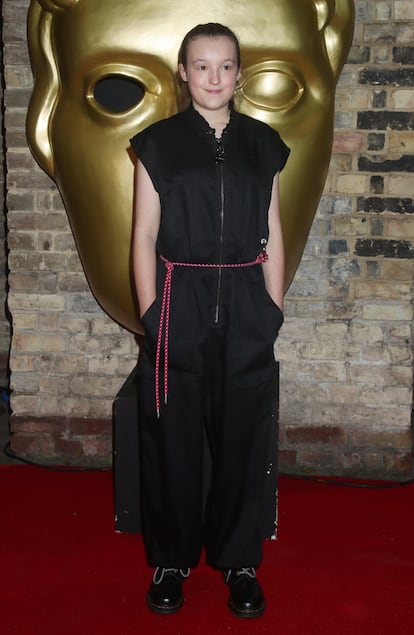
Ramsey isn’t the only target from The Last of Us that haters have sunk their claws into. During the first season, the mere presence of a menstrual cup or the mention of communism — some survivors take refuge in a commune — enraged more sensitive fans. (Warning: spoilers ahead). However, none sparked as much anger as the third episode of the first season, Long, Long Time, centered on the romance between two men. Many complained that this plot, which was present in the video game, “ruined their The Last of Us experience.” This was echoed by similar complaints regarding the love story between Ellie and her partner Riley, which has taken center stage in the second season.
Druckmann wasn’t surprised by the backlash toward some elements of the series. If the original video game had set off alarm bells among diehard fans, its second part was far more than they could tolerate — due to Joel’s death, Ellie’s lesbianism, the inclusion of a trans character, and Abby’s non-traditional physique. The woman who kills Joel to avenge her father’s death is muscular in the video game, a physicality the series doesn’t reflect because the role went to Kaitlyn Dever, who is already receiving her own share of hate for her character’s actions. No one is spared. Or perhaps some are — it’s rarely mentioned that Pedro Pascal bears little resemblance to Joel, who in the video game bears a striking resemblance to actor Dylan McDermott.
The long-awaited release of the video game’s second part also fell victim to “review bombing,” a childish form of boycott where organized groups visit review sites like IMDb or Rotten Tomatoes to leave extremely low ratings, sometimes even before the product has been released (something that happened with the all-female Ghostbusters reboot and almost any product not starring heterosexual white men). Here, it’s not about attractiveness. It’s an easily detectable trend: while professional reviews consistently rated the game highly, the public ratings barely scraped a passing grade. Is this a question of quality? More likely, it’s intolerance.
Unlike companies that are extremely sensitive to the fury of the manosphere, Naughty Dog, the game’s creator, takes it all in stride. In fact, they actively promote diversity in their products. “Everything is in service of the story. Getting better diversity gives us better story, gives us fresher perspectives on conflict. And I hope once they play the game, they’ll realize it,” said Druckmann.
Mazin understands the backlash against Ramsey. He recognizes that players were dazzled by the game’s physical portrayal of Ellie and struggled to adjust to Ramsey’s build and even her voice, which belonged to actress Ashley Johnson, a 30-year-old woman. But that kind of drama rarely happens with other products. Actors as diverse as Jack Nicholson and Heath Ledger have played the Joker, Tom Holland doesn’t look like the most canonical Peter Parker, and Hulk went from Edward Norton to Mark Ruffalo without Reddit needing to acquire extra storage space for all the vitriol.

“In this medium, there’s this new kid and they’re like, ‘Well, we didn’t want the new kid. We didn’t ask for the new kid. I don’t like this new kid. She doesn’t look like the old kid,’” Mazin told Elle. “Then what’s going to happen, if they watch, is they’re going to be like, ‘Well, the new kid’s fine. She’s not as good as the old kid, but the new kid’s okay.’ Then they’re going to be like, ‘I kind of love this new kid.’ Then eventually they will arrive at, ‘If anybody hurts this new kid, I’ll kill them.’”
Ramsey doesn’t seem to need any champions; she’s not one to back down. She doesn’t hide or conform. Despite the vicious hate campaign against her, she has spoken openly about her non-binary identity, her battle with anorexia nervosa, her struggles with mental health, and her recent autism diagnosis, which she discovered while filming the series.
She doesn’t shy away from difficult topics. She has unwaveringly supported the Palestinian cause, and following the U.K. Supreme Court’s recent ruling on biological sex, she was among more than 400 film and television professionals who signed an open letter expressing “solidarity with trans, non-binary, and intersex communities.” Like her character Ellie, she appears to be capable of standing her ground, even when the hostility she faces can sometimes feel more menacing than Cordyceps itself.
“I’m not particularly anxious about it,” she said in an interview with GQ. “I know people will think what they want to think. But they’re gonna have to get used to it. If you don’t want to watch the show because it has gay storylines, because it has a trans character, that’s on you, and you’re missing out.”
Sign up for our weekly newsletter to get more English-language news coverage from EL PAÍS USA Edition
[ad_2]
Source link

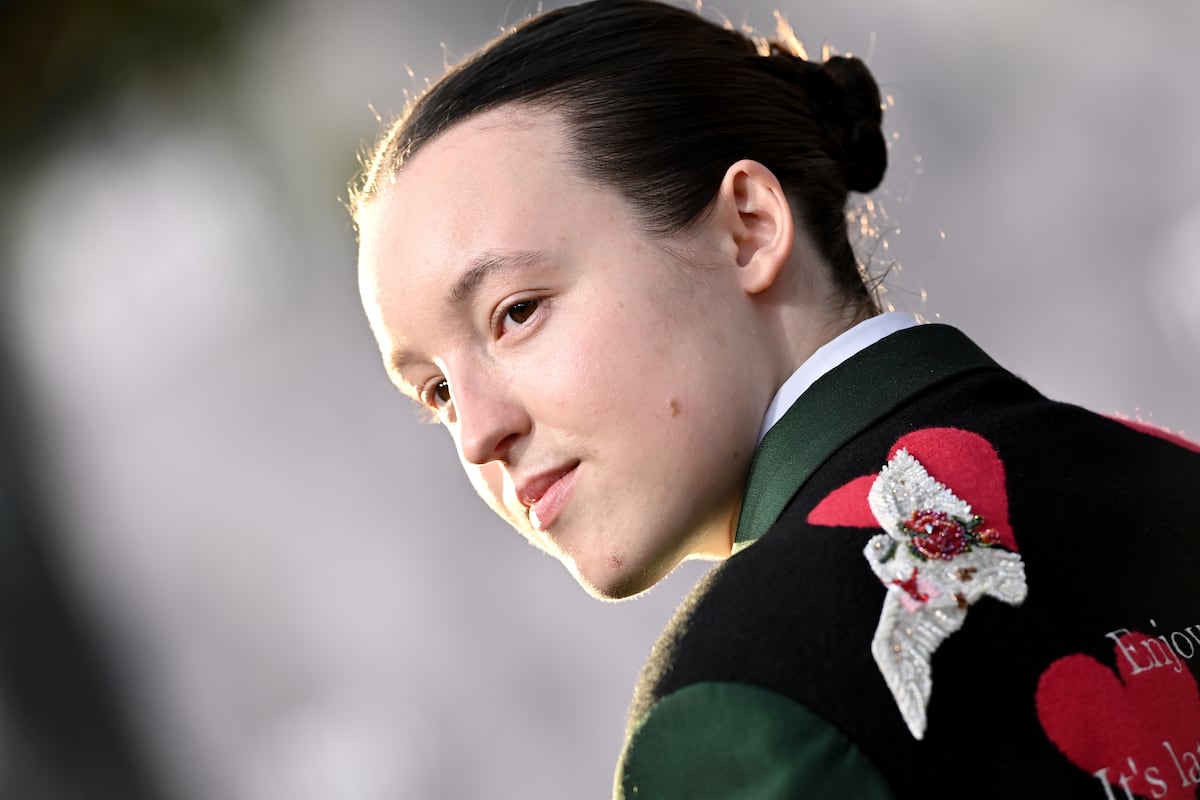
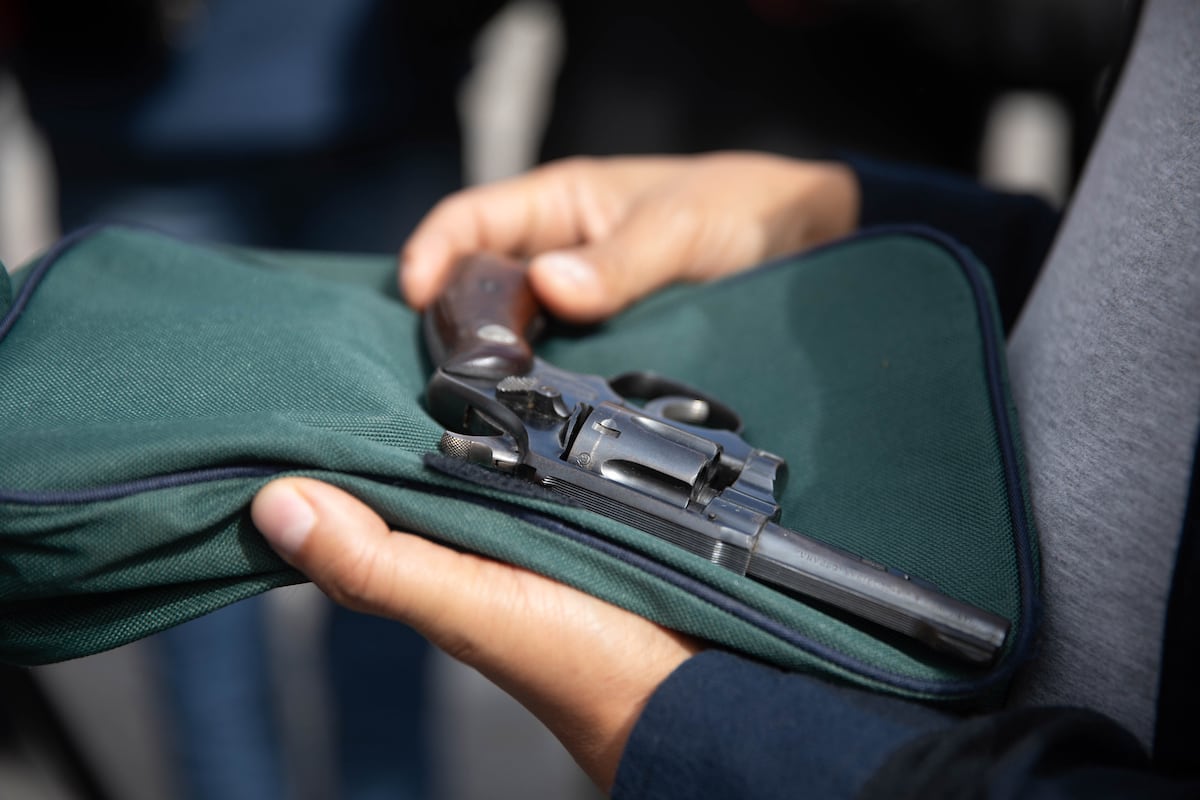
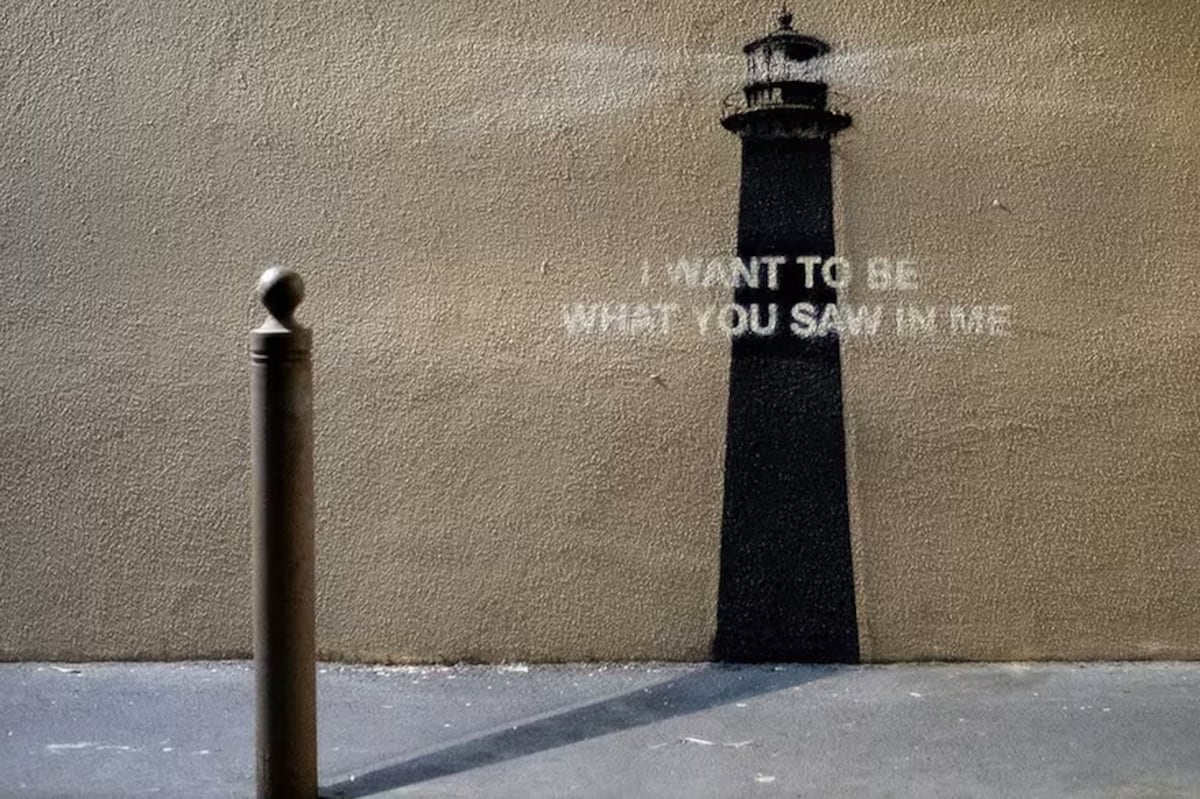



Comentarios